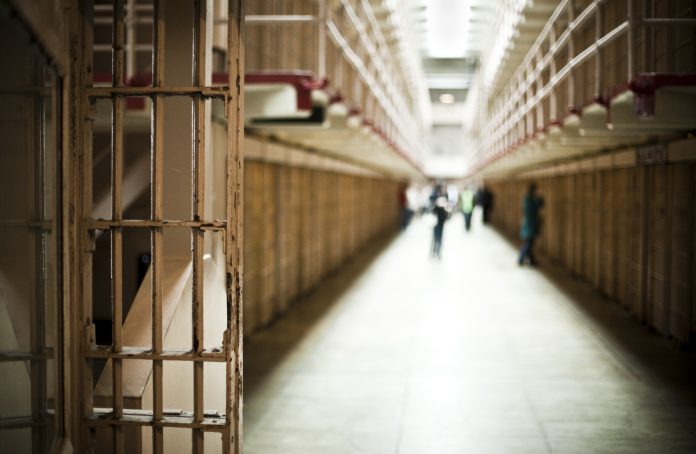Discover the role religion plays in promoting prisoner well-being
Incarceration is a challenging experience for individuals (1), but the role of religion in promoting prisoner well-being is often overlooked. (2) Religious beliefs profoundly impact inmate rehabilitation, with religious programs proving effective in prisons. (3,4) Chaplains play a vital role in nurturing spiritual well-being among inmates, while religious support networks within prisons offer essential guidance and solace. (5,6) Recognizing and addressing religious freedom and diversity within prisons is crucial for fostering a positive and inclusive prison environment. (7,8)
Impact of religious beliefs on inmate rehabilitation
The impact of religious beliefs on inmate rehabilitation can be significant in promoting positive change. (2) Individuals with a solid connection to their faith often find comfort, guidance, and a sense of purpose. (5,6,9) These religious beliefs can help inmates develop a moral compass and a desire to transform their lives. (10) Through spiritual teachings and practices, inmates may gain a sense of hope, forgiveness, and redemption, which can motivate them to make positive choices and strive for personal growth. (3,11)
Additionally, religious programs within prisons allow inmates to engage in religious study groups and counseling sessions, offering them a supportive community and a chance to reflect on their actions. (3) Overall, the influence of religious beliefs can play a crucial role in inmate rehabilitation, fostering a desire for change and facilitating the path toward a productive and meaningful life. (2,9)
Prisoner well-being: Religious programs and their effectiveness in prison
Religious programs, which focus on spiritual guidance and moral teachings, promote accountability and personal growth by encouraging inmates to reflect on their actions and make amends. (3,4,5,10). Moreover, these programs provide a supportive community that fosters positive relationships, reducing the risk of reoffending upon release. (3,11)
Inmates who engage in religious activities often experience a sense of hope and redemption, which can be instrumental in their successful reintegration into society. (12) Studies have shown that participation in religious programs is associated with lower recidivism rates, suggesting that these programs effectively promote long-term behavioral change. (13)
Role of chaplains in promoting spiritual well-being among inmates
Chaplains play a vital part in providing religious services and counseling to inmates, helping them find solace and meaning during their time in prison. (5,14) Without chaplains, inmates would lack the necessary support to explore their faith, find forgiveness, and seek redemption. (5)
Chaplains offer a listening ear, a compassionate heart, and a source of hope and inspiration. (15) They create a safe, non-judgmental space where inmates can express their fears, doubts, and hopes. (5) Through their guidance, chaplains help inmates develop a sense of purpose, foster personal growth, and build a stronger connection with their faith. (16,17) Chaplains in prisons are essential for the spiritual well-being of inmates, (5) but also contribute to their overall rehabilitation and successful reintegration into society. (18)
Religious support networks within prisons to promote prisoner well-being
Religious support networks within prisons play a crucial role in promoting the well-being of inmates. (6) These networks consist of chaplains, volunteers, and religious organizations that offer various services such as religious ceremonies, counseling, and religious education. (17,19)
By providing inmates with a sense of belonging, these networks help reduce feelings of isolation and despair. (20,21) Inmates participating in religious activities often report better mental and emotional well-being and a lower chance of violence or misconduct. (22)
Religious freedom and diversity in prisons
The United States prison system recognizes the significance of allowing inmates to practice their religion freely while respecting the diversity of religious beliefs. (23,24) This acknowledgment is crucial in promoting a sense of purpose, hope, and rehabilitation among prisoners.
By accommodating spiritual practices, such as providing prayer spaces, religious literature, and access to religious leaders, incarcerated individuals can find solace and guidance within their faith. (5,25) Embracing religious diversity within prisons fosters an environment of tolerance and respect, allowing inmates from different religious backgrounds to coexist harmoniously. (26) This inclusive approach affirms prisoners’ constitutional rights, facilitates personal growth, and helps them reintegrate into society upon release. (27)
Conclusion: Religion in U.S. prisons
Religion plays a significant role in promoting prison well-being in the United States. Chaplains play a crucial role in fostering spiritual well-being among inmates, while religious support networks within prisons provide a sense of community and support. Additionally, addressing religious freedom and diversity in prisons ensures that all inmates can practice their faith, further contributing to their well-being.
References
- https://www.prisonpolicy.org/blog/2021/05/13/mentalhealthimpacts/
- https://www.openaccessgovernment.org/article/religion-offender-rehabilitation-prisoner-well-being/156480/
- https://www.ncbi.nlm.nih.gov/pmc/articles/PMC9748388/
- https://www.researchgate.net/publication/225067819_Criminal_
rehabilitation_The_impact_of_religious_programming - https://cbcew.org.uk/plain/wp-content/uploads/sites/3/2018/11/belief-and- belonging-final-070416.pdf
- https://home-affairs.ec.europa.eu/system/files/2022-02/ran_prisons_religious_counselling_6-7_102020_en.pdf
- https://www.justiceinspectorates.gov.uk/hmiprisons/our-expectations/immigration-detention-expectations/centres-for-adult-men/res pect/equality-diversity-and-faith/
- https://www.aclu-de.org/en/know-your-rights/freedom-religion-prison
- https://www.ncbi.nlm.nih.gov/pmc/articles/PMC3671693/
- https://conservativejusticereform.org/issue/faith-behind-bars/
- https://www.college.police.uk/research/crime-reduction-toolkit/prison-education
- https://scholarworks.waldenu.edu/cgi/viewcontent.cgi?article=10387& context=dissertations
- https://www.ncbi.nlm.nih.gov/pmc/articles/PMC7220049/
- https://orca.cardiff.ac.uk/id/eprint/29120/1/Chaplaincy%20Report%20Final %20Draft%20(3).pdf
- https://d3hgrlq6yacptf.cloudfront.net/60638a2c87045/content/pages/ documents/chaplaincy-and-hope.pdf
- https://www.cmcainternational.org/wp-content/uploads/2019/05/Pastoral_Care.pdf
- https://www.sciencedirect.com/science/article/abs/pii/S0047235202001526
- https://assets.publishing.service.gov.uk/government/uploads/system/ uploads/attachment_data/file/243718/evidence-reduce-reoffending.pdf
- https://www.england.nhs.uk/long-read/nhs-chaplaincy-guidelines-for-nhs-managers-on-pastoral-spiritual-and-religious-care/
- https://www.mentalhealth.org.uk/explore-mental-health/publications/looking-after-your-mental-health-prison-guide-male-prisoners
- https://www.brighton.ac.uk/_pdf/research/ssparc/rehabilitation-by-design.pdf
- https://journals.sagepub.com/doi/10.1177/2156869318763248
- https://www.aclu.org/issues/prisoners-rights/civil-liberties-prison/religious-freedom-prison
- https://www.scranton.edu/faculty/dammerh2/ency-religion.shtml#:~:text= In%20the%20First%20Amendment%20of,certain%20legal%20rights%20 concerning%20the
- https://www.cair.com/wp-content/uploads/2020/02/A-Correctional- Institution%E2%80%99s-Guide-to-Islamic-Religious-Practices.pdf
- https://prisonreformtrust.org.uk/adviceguide/faith-in-prison/
- https://www.ohchr.org/en/instruments-mechanisms/instruments/basic-principles-treatment-prisoners











